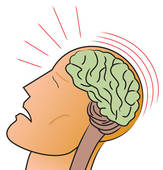Students will examine philosophical assumptions of major counseling theories and apply empirically verified modalities and techniques that can be faithfully housed within the Christian tradition. Students will learn to administer formal and informal assessment tools, as well as adopt counseling theories and clinical interventions which will enable them to competently address the religious/spiritual dimension of client functioning in culturally and ideological diverse treatment settings.
- Course Instructor : Amanda Prugar
This course provides the student with the necessary skills to professionally evaluate the current research in the field of counseling. Topics include research strategies, scaling and coding, internal and external validity, and program evaluation. Prerequisite: CNS 504.
- Course Instructor : Amy Hayes Siler
A comprehensive overview, integration, and application of major theories and techniques employed in the counseling process. Specific advanced counseling interventions by master counselors will be reviewed via videotape and critiqued. Initial counseling skills will be developed via videotaped role play and will be reviewed and critiqued by the instructor. Basic models and strategies of consultation will be explored from theoretical and pragmatic points of view and applied to case material. Spring and Summer semester.
- Course Instructor : Jill Perry

This course addresses the nature of crisis and trauma from the intake interview through evidenced-based best practices for treatment models. It is designed to introduce students to the complex issues surrounding both crisis and trauma, including trauma-informed care, trauma awareness (types, characteristics of, and individual and sociocultural features), trauma reactions, trauma-related symptoms, and co-occurring disorders, screening and assessment, treatment issues, and trauma-specific treatment models. The effects of trauma on the brain, body, and the mind will be discussed. Psychological First Aid, the ethics of caring for trauma survivors, secondary trauma, and the importance of clinical supervision are also discussed. Students will be required to participate in several role plays and demonstrate competency in crisis management and suicide assessment as well as complete the Psychological First Aid training and receive certification.
- Course Instructor : Trevor Stiffler
The course covers the nature, development, and management of school counseling programs and differences between elementary and secondary school contexts. Students will develop knowledge of concepts, skills, and issues necessary to function effectively as school counselors. Students will be able to assess, plan, and integrate the elements of a comprehensive program that reflects the programmatic and ethical standards of the American School Counselor Association, including structuring of essential services to foster personal, social, educational, and career development in students.
Prerequisite: The course is open to graduate students in the Master of Arts in Counseling School Counseling Program.
- Course Instructor : Amanda Prugar